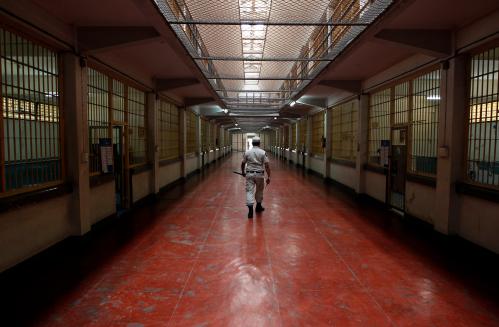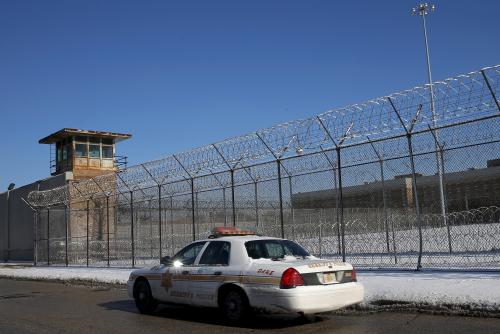High recidivism rates—some 50 percent of released prisoners return within three years—constitute a major factor driving both high crime rates and high incarceration rates. The unduly sudden process of prisoner release contributes to recidivism by confronting releasees with unnecessarily difficult problems of subsistence and adjustment.
Graduated Reintegration addresses that problem by making the release process less sudden. This paper offers a proposal to pilot and evaluate Graduated Reintegration, which would move prisoners from their cells to supported housing before what otherwise would have been their release dates. Participants would be subject to prison-like rules (curfew, position monitoring, drug testing, no use of cash, directed job search) enforced by a system of swift, certain, and fair rewards and sanctions. Compliance and achievement would be rewarded with increased freedom, and noncompliance sanctioned with temporarily increase restriction. Graduated Reintegration aims to transform the releasee continuously rather than suddenly from a prisoner in a cell to an ordinary resident with an apartment and a job.
The Brookings Institution is committed to quality, independence, and impact.
We are supported by a diverse array of funders. In line with our values and policies, each Brookings publication represents the sole views of its author(s).









Commentary
Graduated reintegration: Smoothing the transition from prison to community
October 21, 2016